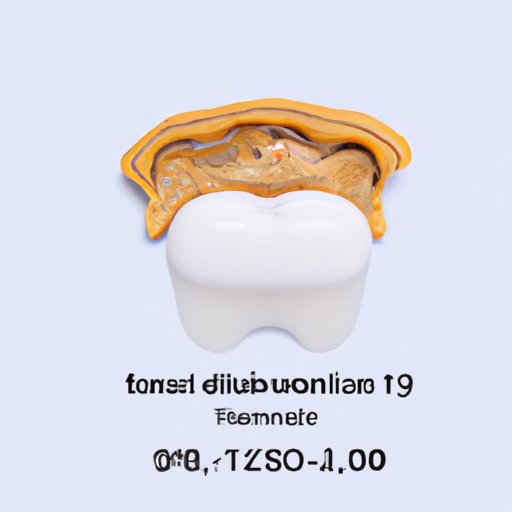
Introduction
Wisdom teeth removal is a common dental procedure that involves removal of one or more wisdom teeth. Preparing for this surgery can be a daunting task, and one of the critical decisions people face is whether to eat before the procedure. Eating before wisdom teeth removal has its pros and cons, and understanding them is crucial to ensure a successful surgery and postoperative recovery. This article provides a comprehensive guide on the pre- and post-operative wisdom teeth diet, timing, fasting, tips for managing hunger and thirst, risks of complications, and importance of following pre-surgery instructions for wisdom teeth removal.
Pros and Cons of Eating Before Wisdom Teeth Removal
Considering eating before wisdom teeth removal has its benefits and drawbacks that one should be aware of to make informed decisions.
The pros of eating before surgery include providing energy, reducing anxiety, and preventing nausea that may arise from hunger. Additionally, for some people, a light meal will not interfere with anesthesia and medications.
However, the cons can outweigh these benefits. Eating before surgery can increase the risks of complications, such as aspiration, vomiting, and bleeding. Furthermore, the food particles in the mouth can interfere with anesthesia and medications, which can delay surgery.
Pre- and Post-operative Wisdom Teeth Diet: What to Eat and What to Avoid
The type of food you consume before and after wisdom teeth removal plays an important role in your postoperative recovery.
Before surgery, it is recommended to stick to soft foods, such as mashed potatoes, yogurt, oatmeal, and nutrition-rich liquids, such as vegetable juice, broths, and protein shakes, while avoiding hot, spicy, crunchy, hard, and carbonated foods and drinks, alcohol, and smoking.
After surgery, cold, soft, bland, and easy-to-swallow foods are recommended to minimize discomfort and promote healing, such as smoothies, soup, pudding, and mashed potatoes. Avoid hot, hard, spicy, acidic, and chewy foods and drinks, using a straw, alcohol, and smoking.
How Timing Your Meals Can Impact Wisdom Teeth Extraction
Timing your meals is important before wisdom teeth removal. A minimum of 6-8 hours of fasting before surgery is required to avoid complications caused by anesthesia and help with surgery.
The time of day and surgery duration can affect hunger and thirst, and as such, proper scheduling of meals before and after surgery is essential.
The Science Behind Fasting Before Wisdom Teeth Removal
The benefits of fasting before wisdom teeth surgery are numerous. Fasting can reduce the risks of complications such as aspiration, clear the stomach for anesthesia and medications, and promote faster recovery times. However, there are exceptions to fasting, such as when you have certain medical conditions or require specific medications.
Tips For Managing Hunger and Thirst Before Wisdom Teeth Extraction
Managing hunger and thirst before wisdom teeth removal can be challenging but is essential for a successful operation. It is crucial to consume enough food and drinks before the fasting period, preferably with water-rich vegetables and fruits, protein-rich foods, and complex carbohydrates. Maintaining proper oral hygiene before surgery is also crucial to prevent infection and promote healing. If hunger and thirst become overwhelming, relaxation techniques such as deep breathing and meditation can help.
Importance of Following Pre-surgery Instructions for Wisdom Teeth Removal
Compliance with pre-surgery instructions plays an important role in reducing the risks of complications and promoting successful recovery. The most common preoperative instructions include medications, transportation, clothes, eating and drinking, oral hygiene, jewelry, and companions.
The Risk of Complications from Eating Before Wisdom Teeth Extraction
Eating before wisdom teeth removal can cause various complications. Digestive complications such as aspiration, nausea, and vomiting occur due to food particles in the mouth. Bleeding complications, such as delayed healing, infection, pain, and dry socket, can also arise from eating before surgery. Eating can also interfere with anesthesia and medication absorption, metabolism, and cause delayed surgery.
Conclusion
In conclusion, making the decision on whether to eat before wisdom teeth removal involves weighing the pros and cons, following preoperative instructions, timing, fasting, managing hunger and thirst, and being aware of complications that can arise. It is essential to speak with your dentist and follow their specific guidelines to ensure a successful surgery and speedy recovery.




